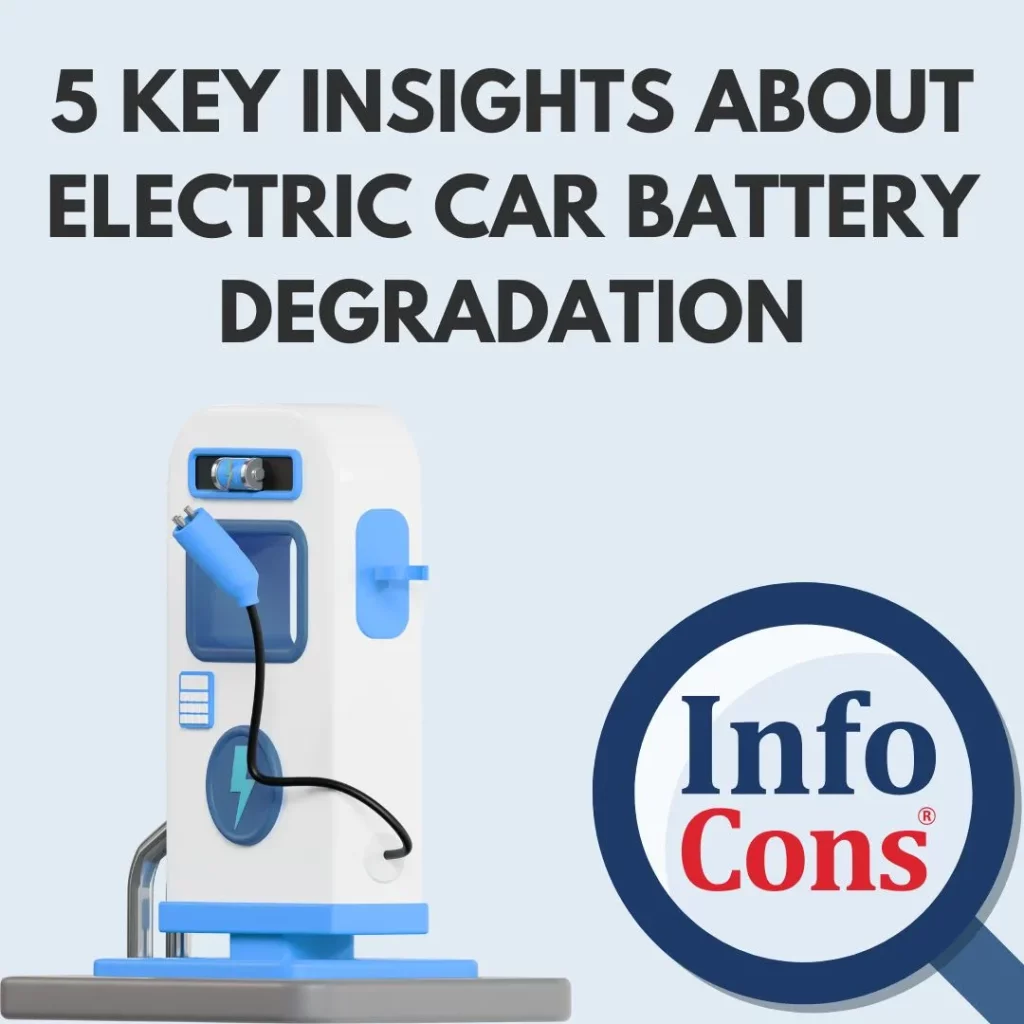
As electric vehicles (EVs) continue gaining popularity, many potential buyers are concerned about battery degradation. After all, most of us have experienced diminishing battery life in smartphones or laptops, and we worry the same could happen with EVs. But how much of a concern is this really?
Through surveys and research, we’ve uncovered key insights into EV battery health and performance over time. In this article, we’ll explore the facts about battery degradation, the impact of cold weather, and what to consider when buying a used EV.
Do Electric Car Batteries Really Degrade Over Time?
Like all rechargeable batteries, EV batteries experience wear and tear that can reduce their performance over time. However, the rate of degradation is often less severe than many fear, especially in the first few years of ownership.
Read also : Understanding Anaemia : How to Recognize and Address this Common Condition
Recent data from a Which? survey highlights the following insights into battery range retention:
- For EVs registered in 2023 or 2024, owners reported retaining 97% of their car’s original range.
- Similarly, EVs registered in 2021 or 2022 also retained 97% of their range.
- Cars registered in 2019 or 2020 showed a slightly lower retention of 96%.
- For older EVs, such as those registered between 2017 and 2018, the average remaining range was 93%.
Even for vehicles around seven years old, the loss in range was relatively modest—around 7% on average. To put this into perspective, if a new EV originally offered a range of 180 miles, this would typically drop to 167 miles after seven years.
It’s worth noting that charging habits, annual mileage, and driving conditions also influence battery health. According to the survey, the average EV owner drives approximately 6,001 miles per year. If you drive fewer miles annually, you may experience even less battery degradation than these averages suggest.
Cold Weather and Its Impact on EV Range
Cold weather is one of the external factors that can noticeably affect EV performance. In freezing temperatures, EV batteries can temporarily lose efficiency, which may result in a reduced driving range. Some studies estimate that EVs can lose up to 40% of their range in extreme cold, although this varies significantly between models.
In addition to reduced range, charging speeds can also slow down in cold conditions. To address this, many newer EVs come with battery pre-heating features that allow drivers to warm the battery before use. These systems can often be controlled via a smartphone app or set on a schedule so that the car is ready to go when you need it.
If you’re considering a used EV, it’s worth checking whether the model you’re interested in includes this feature, as it can make a significant difference in winter performance.
Read also : How 3 EU Countries Account for 81% of Jewellery Production
The Protection Offered by EV Battery Warranties
One of the key advantages of owning an electric vehicle is the comprehensive battery warranties offered by manufacturers. Most EVs come with warranties that last seven to eight years or approximately 100,000 miles, whichever comes first.
These warranties often include a guarantee for a minimum level of battery health, typically around 70%. If the battery’s performance drops below this threshold during the warranty period, you may be eligible for a free replacement. However, it’s important to note that a 30% reduction in range can significantly impact long-distance driving, especially in colder conditions.
For drivers planning to keep their EVs long term, it’s worth considering the worst-case scenario: a reduced battery range on a cold day. This can help you make an informed decision when choosing an EV model that aligns with your needs.
Key Considerations When Buying a Used EV
If you’re in the market for a used electric car, taking the following steps can help ensure you make a smart purchase:
- Check the Warranty: Verify whether the original battery warranty is still valid and familiarize yourself with its terms.
- Inspect Maintenance Records: Ensure the car has been serviced according to manufacturer guidelines, particularly when it comes to battery health checks.
- Avoid Modifications: Find out if the previous owner made any modifications to the car’s software or hardware that could void the warranty or affect battery performance.
By doing your research and asking the right questions, you can purchase a reliable used EV with confidence.
Read also : Epilepsy Prevention : How 1 in 4 Cases Can Be Avoided
The Future of EV Batteries : Should You Be Concerned?
Battery degradation in electric vehicles is an inevitable process, but it’s far less problematic than many prospective buyers might assume. Modern EVs are designed to retain the majority of their battery health for years, and advancements in technology continue to improve battery longevity.
While external factors like driving habits and cold weather can influence battery performance, following best practices can help extend the lifespan of your EV’s battery. Additionally, robust warranties offered by manufacturers provide peace of mind for long-term EV owners.
If you’re considering an electric vehicle, rest assured that battery degradation is unlikely to overshadow the many benefits of going electric. With proper care and informed decision-making, your EV can remain a reliable and eco-friendly choice for years to come.
Source : Which?
InfoCons – European Organization for Consumer Protection and Promotion of Programs and Strategies , a full member of the World Organization Consumers International, founding member of the Federation of Consumer Associations, and member of ANEC .